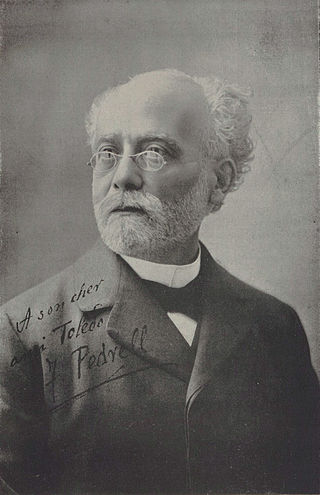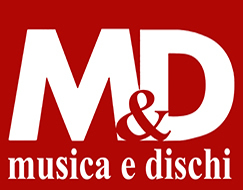Martin Agricola was a German composer of Renaissance music and a music theorist.

Giovanni Battista or Giambattista Martini, O.F.M. Conv., also known as Padre Martini, was an Italian Conventual Franciscan friar, who was a leading musician, composer, and music historian of the period and a mentor to Mozart.

John Dunstaple was an English composer whose music helped inaugurate the transition from the medieval to the Renaissance periods. The central proponent of the Contenance angloise style, Dunstaple was the leading English composer of his time, and is often coupled with William Byrd and Henry Purcell as England's most important early music composers. His style would have an immense influence on the subsequent music of continental Europe, inspiring composers such as Du Fay, Binchois, Ockeghem and Busnois.

Joaquín Turina Pérez was a Spanish composer of classical music.

Giuseppe Tartini was an Italian composer and violinist of the Baroque era born in Pirano in the Republic of Venice. Tartini was a prolific composer, composing over a hundred pieces for the violin, the majority of them violin concertos. He is best remembered for his Violin Sonata in G Minor.
Lasus of Hermione was a Greek lyric poet of the 6th century BC from the city of Hermione in the Argolid. He is known to have been active at Athens under the reign of the Peisistratids. Pseudo-Plutarch's De Musica credits him with innovations in the dithyramb hymn. According to Herodotus, Lasus also exposed Onomacritus's forgeries of the oracles of Musaeus. Lasus is recorded to have written a now lost treatise on music, of which very little is known.

Johann Joseph Fux was an Austrian composer, music theorist and pedagogue of the late Baroque era. His most enduring work is not a musical composition but his treatise on counterpoint, Gradus ad Parnassum, which has become the single most influential book on the Palestrinian style of Renaissance polyphony.

Hucbald was a Benedictine monk active as a music theorist, poet, composer, teacher, and hagiographer. He was long associated with Saint-Amand Abbey, so is often known as Hucbald of St Amand. Deeply influenced by Boethius' De Institutione Musica, Hucbald's (De) Musica, formerly known as De harmonica institutione, aims to reconcile ancient Greek music theory and the contemporary practice of Gregorian chant with the use of many notated examples. Among the leading music theorists of the Carolingian era, he was likely a near contemporary of Aurelian of Réôme, the unknown author of the Musica enchiriadis, and the anonymous authors of other music theory texts Commemoratio brevis, Alia musica, and De modis.

Felip Pedrell Sabaté was a Catalan composer, guitarist and musicologist.
Andreas Werckmeister was a German organist, music theorist, and composer of the Baroque era. He was amongst the earliest advocates of equal temperament, and through this advocacy was highly influential to the harmonic basis underlying almost all of subsequent Western music.
Sir Curtis Alexander Price, KBE was the Warden of New College, Oxford, between October 2009 and September 2016. He was previously principal of the Royal Academy of Music from 1995 to 2008 and Professor of Music in the University of London. He retired as the warden of New College at the end of August 2016.
Musical improvisation is the creative activity of immediate musical composition, which combines performance with communication of emotions and instrumental technique as well as spontaneous response to other musicians. Sometimes musical ideas in improvisation are spontaneous, but may be based on chord changes in classical music and many other kinds of music. One definition is a "performance given extempore without planning or preparation". Another definition is to "play or sing (music) extemporaneously, by inventing variations on a melody or creating new melodies, rhythms and harmonies". Encyclopædia Britannica defines it as "the extemporaneous composition or free performance of a musical passage, usually in a manner conforming to certain stylistic norms but unfettered by the prescriptive features of a specific musical text." Improvisation is often done within a pre-existing harmonic framework or chord progression. Improvisation is a major part of some types of 20th-century music, such as blues, rock music, jazz, and jazz fusion, in which instrumental performers improvise solos, melody lines and accompaniment parts.
The Mulliner Book is a historically important musical commonplace book compiled probably between about 1545 and 1570, by Thomas Mulliner, about whom practically nothing is known, except that he figures in 1563 as modulator organorum (organist) of Corpus Christi College, Oxford. He is believed to have previously resided in London, where John Heywood inscribed the title page of the manuscript Sum liber thomas mullineri / iohanne heywoode teste.. A later annotation on the same page states that: T. Mulliner was Master of St Pauls school, but this has so far proved unsupportable. The provenance of the MS is unknown before it appears in the library of John Stafford Smith in 1776. After passing through the hands of Edward Francis Rimbault the MS was given to the British Museum in 1877 by William Hayman Cummings.

Productores de Música de España is the national organisation responsible for the music charts of Spain. It is a trade association that represents more than 90% of the Spanish recorded music industry. It is the International Federation of the Phonographic Industry (IFPI) group for Spain. Promusicae is based in Madrid, Spain at Calle María de Molina, 39.

Pro-Música Brasil (PMB), previously Associação Brasileira dos Produtores de Discos (ABPD), is an official representative body of the record labels in the Brazilian phonographic market.

Sir Anthony Carey Lewis was an English musicologist, conductor, composer, and music educator. He co-founded and served as the first chief editor of Musica Britannica, producing scholarly editions of British music hitherto unavailable. He published critical editions of operas by Handel, Purcell and John Blow.

Musica e dischi was the oldest and longest-running music industry publication in Italy.
Orlando generoso is an opera of Agostino Steffani composed to a libretto by Ortensio Mauro after Ariosto's Orlando furioso. The opera was written in 1691, Steffani's fourth for the Duchy of Hanover. The opera was presented again in Hanover in 1692, and in 1695 it was performed at the Oper am Gänsemarkt in Hamburg.
Julian Gordon Rushton is an English musicologist, born in Cambridge. He has contributed the entry on Mozart in The New Grove Dictionary of Opera and several other articles in The New Grove Dictionary of Music and Musicians and other reference works. He has written a critical study of the style of Hector Berlioz and was involved in critical editions of that composer's works. In 1999, he published an analysis of Elgar's Enigma Variations. His book Coffee with Mozart (2007) has been translated into German. He also wrote Mozart and Mozart: An Extraordinary Life (2006). In addition to his 1983 work The Musical Language of Berlioz, he wrote The Music of Berlioz as well as several articles on Mozart, Berlioz, and Elgar. He was General Editor of Cambridge Music Handbooks, contributing Berlioz, Roméo et Juliette and Elgar, 'Enigma' Variations. He has edited works by Charpentier, Berlioz, Elgar, and Vaughan Williams. He is editor the Cambridge Berlioz Encyclopedia (2018). He was for 25 years chair of the Editorial Committee of Musica Britannica.










